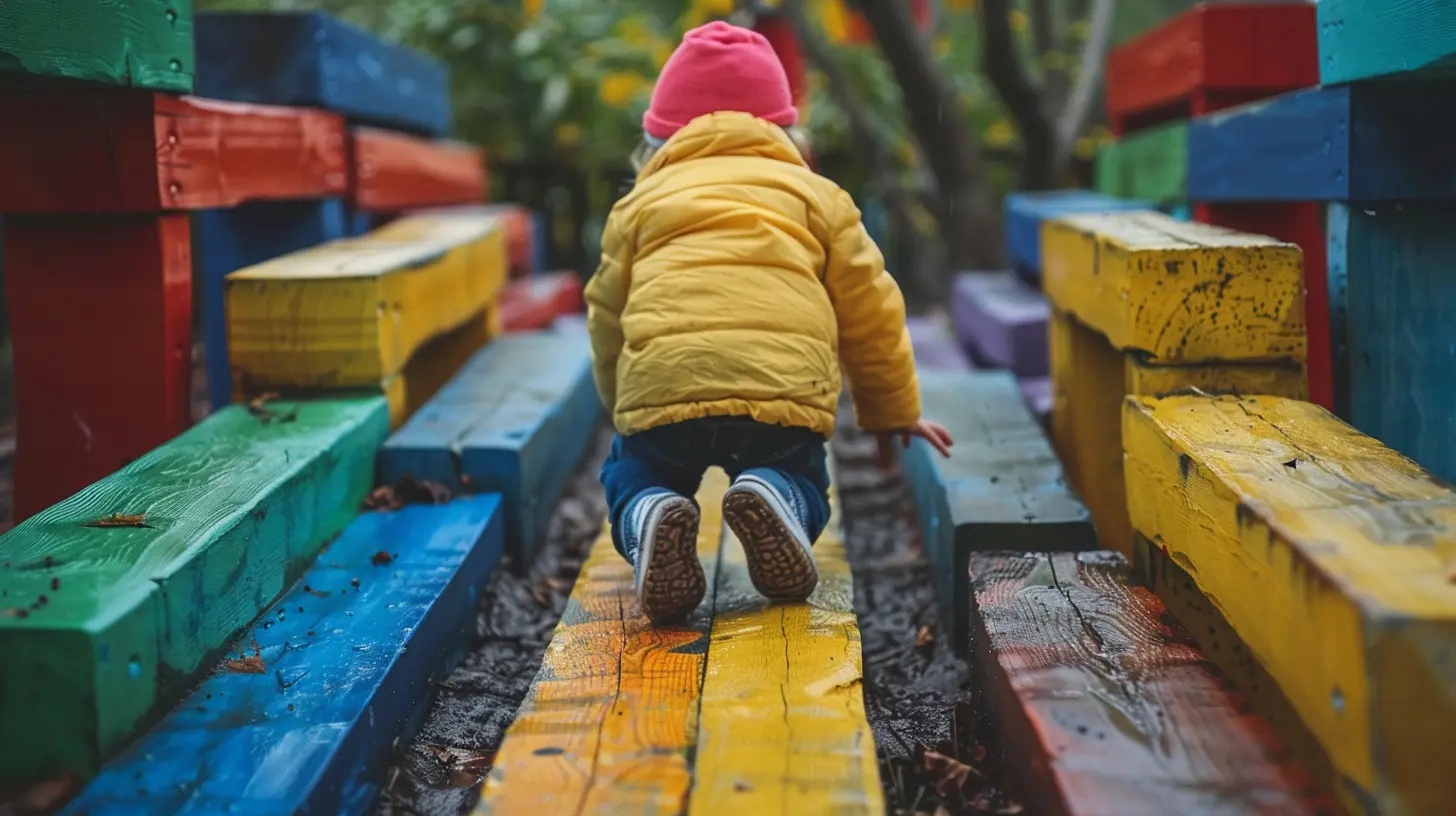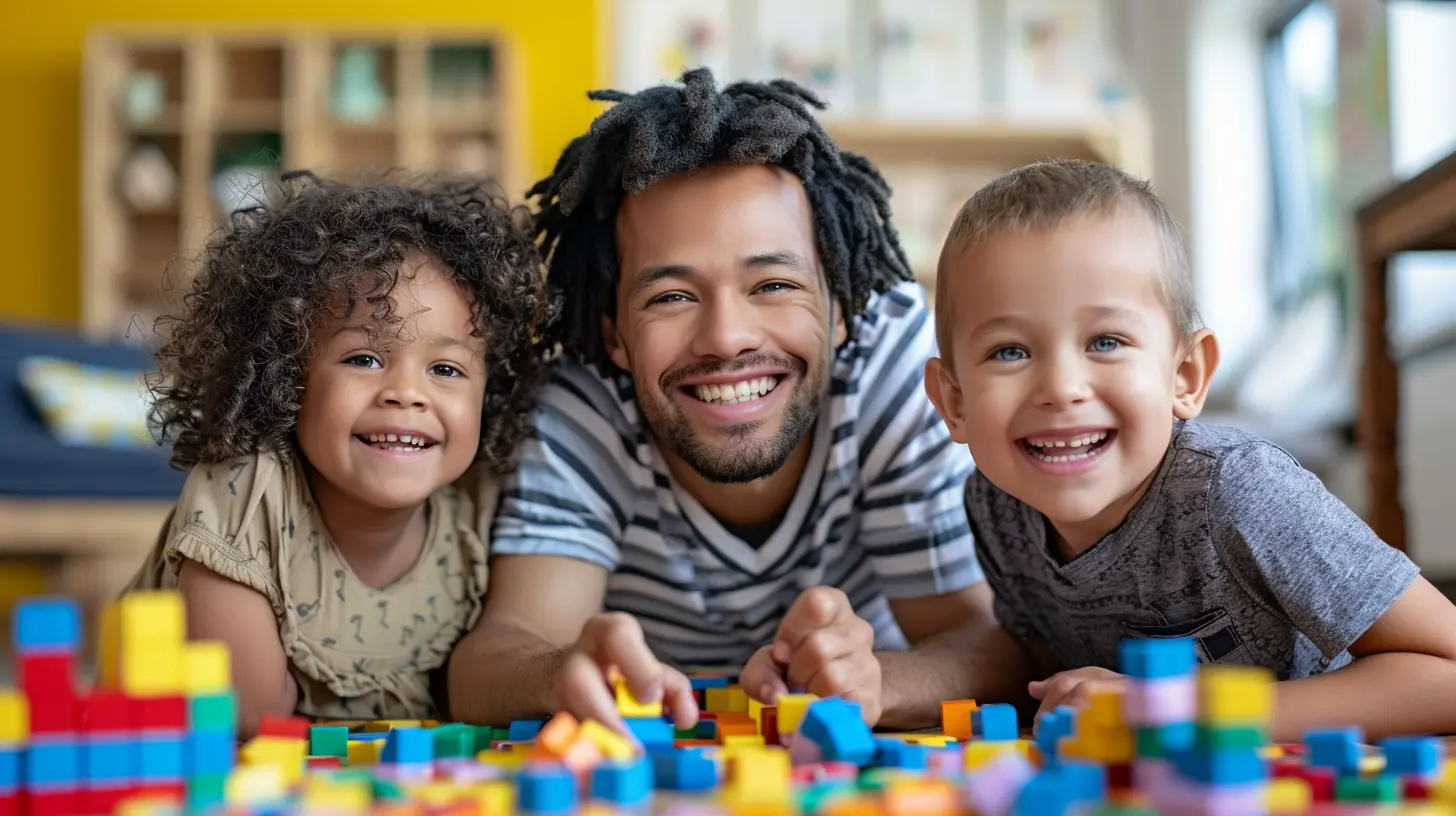Helping Your Child Develop Strong Social Skills
28 April 2025
Social skills are an essential part of everyday life. From making friends on the playground to building relationships as adults, these skills shape how we interact with others. As a parent, you play a crucial role in helping your child develop strong social skills. But how exactly do you teach a child to communicate, empathize, and cooperate with others? Don’t worry—we’ve got all the answers right here!
Let’s break down some practical ways to help your child navigate social interactions confidently.

Why Are Social Skills Important?
Imagine a world where people couldn’t communicate effectively—chaos, right? Social skills help children express themselves, build friendships, collaborate, and handle conflicts. These skills also boost self-esteem, emotional intelligence, and overall happiness.Strong social skills can help your child:
- Make and maintain friendships
- Develop empathy and understanding
- Handle conflicts peacefully
- Communicate their thoughts clearly
- Work well in team settings
- Adapt to different social situations
Now that we know why social skills matter, let’s dive into the ways you can help your little one become socially confident.

1. Encourage Open Communication
Your child’s ability to communicate starts at home. Make it a habit to talk with them about their day, feelings, and thoughts. When they express themselves, listen actively—put down your phone, maintain eye contact, and respond thoughtfully.Also, teach them the art of conversation. Simple things like saying “hello,” asking questions, and showing interest in others can go a long way in building relationships.
Quick Tips:
✔ Ask open-ended questions like, “What was the best part of your day?”✔ Encourage them to describe their feelings instead of acting out.
✔ Show them how to take turns speaking in a conversation.

2. Teach Empathy and Understanding
Empathy is the foundation of strong social skills. It helps children understand other people’s emotions and respond with kindness and compassion. But how do you teach empathy?Start by helping them recognize feelings—both their own and others’. When they see someone upset, ask, “How do you think they feel?” Encourage them to consider different perspectives and practice kindness in everyday interactions.
Quick Tips:
✔ Read books about emotions and discuss how characters feel.✔ Role-play different social scenarios together.
✔ Praise them when they show kindness or understanding.

3. Encourage Play and Group Activities
Children learn social skills best through play. Whether it’s a game of tag, building a fort, or working on a group project, these activities teach cooperation, patience, and teamwork.Sign them up for team sports, playdates, or group classes like art or music. These experiences provide real-life practice for sharing, problem-solving, and handling different personalities.
Quick Tips:
✔ Organize playdates or group activities regularly.✔ Encourage cooperative games like puzzles or board games.
✔ Teach them how to handle losing gracefully.
4. Teach Problem-Solving and Conflict Resolution
Let’s face it—kids will have disagreements. But instead of stepping in immediately, teach them how to resolve conflicts on their own. Guide them in finding fair solutions, using words instead of aggression, and considering the other person’s perspective.When a conflict arises, ask:
- “What happened?”
- “How do you think the other person feels?”
- “What can we do to fix this?”
Teaching children these steps early helps them handle disagreements in a healthy, constructive way as they grow.
Quick Tips:
✔ Encourage taking turns and compromise.✔ Teach them calming techniques (deep breaths, counting to ten).
✔ Be a role model—show them how you solve conflicts calmly.
5. Help Them Develop Confidence
Confidence makes a huge difference in social interactions. A confident child is more likely to initiate conversations, make friends, and stand up for themselves.Boost their confidence by encouraging their strengths, celebrating achievements (big or small), and allowing them to make their own decisions. Positive reinforcement helps build self-assurance in social situations.
Quick Tips:
✔ Allow them to speak for themselves in social settings.✔ Praise effort, not just results.
✔ Avoid overcorrecting—let them learn from small mistakes.
6. Teach Good Manners and Respect
Manners are the glue that holds social interactions together. Teach your child the basics—saying “please” and “thank you,” respecting personal space, making eye contact, and using polite language.Remind them that respect isn't just about words—it’s about actions too. Teach them to be considerate of others' feelings and to treat everyone with kindness.
Quick Tips:
✔ Use role-playing to practice polite social exchanges.✔ Correct impolite behavior gently but consistently.
✔ Be a role model—kids learn by watching you!
7. Limit Screen Time and Promote Face-to-Face Interaction
In today's digital world, it’s easy for kids to get glued to screens instead of engaging in real-life interactions. While technology has its benefits, too much screen time can hinder social development.Encourage activities that involve in-person communication—family dinners, outdoor play, or even simple conversations during car rides. Give them plenty of opportunities to interact with people outside of the digital world.
Quick Tips:
✔ Set screen time limits and encourage offline activities.✔ Engage in family bonding time without devices.
✔ Encourage face-to-face play with peers.
8. Be a Positive Role Model
Children learn social skills by watching adults. If they see you communicating respectfully, listening empathetically, and handling conflicts calmly, they’ll mimic those behaviors.Be mindful of how you interact with others, even in frustrating situations. Show them the importance of kindness, patience, and respect through your actions.
Quick Tips:
✔ Demonstrate active listening and respectful communication.✔ Apologize when necessary—show them that everyone makes mistakes.
✔ Encourage a positive attitude toward social interactions.
9. Encourage Independence in Social Situations
As tempting as it is to step in and direct every social interaction, sometimes the best thing you can do is step back. Allow your child to navigate social situations independently, whether it’s ordering their meal at a restaurant or introducing themselves to new friends.This builds confidence and teaches them how to handle different scenarios on their own.
Quick Tips:
✔ Give them small responsibilities in social settings.✔ Encourage them to approach new people and start conversations.
✔ Offer guidance, but let them handle situations themselves.
Final Thoughts
Developing strong social skills doesn’t happen overnight—it’s a journey. But with patience, encouragement, and plenty of practice, your child will grow into a confident, socially aware individual who can navigate the world with ease.Remember, every child learns at their own pace. Keep creating opportunities for them to practice, celebrate their progress, and most importantly, make social learning fun!
By following these simple yet effective strategies, you’re setting your child up for a lifetime of meaningful connections and positive interactions.
all images in this post were generated using AI tools
Category:
Child DevelopmentAuthor:

Austin Wilcox
Discussion
rate this article
4 comments
Shannon McClure
Encourage open communication and practice empathy to boost social skills.
May 16, 2025 at 4:02 PM

Austin Wilcox
Absolutely! Open communication and empathy are key to nurturing strong social skills in children.
Iris Mullen
Empowering kids to connect—social skills for lifelong success!
May 1, 2025 at 4:21 PM

Austin Wilcox
Thank you! Building strong social skills in children is essential for their future success and happiness.
Astranor McMahon
Sure, teaching social skills is vital, but let’s be real: if your kid’s idea of ‘making friends’ involves tackling them in the playground, we might need more than just role-playing! Time to step up and help them navigate the wild world of social dynamics!
April 30, 2025 at 2:52 AM

Austin Wilcox
Absolutely! A well-rounded approach that includes guidance on appropriate interactions is essential for helping children navigate social dynamics effectively.
Jasmine Thornton
Nurturing your child's social skills is a beautiful gift that empowers them for life. With patience and love, you’re shaping confident communicators and compassionate friends. Every small step matters!
April 28, 2025 at 4:11 PM

Austin Wilcox
Thank you for your thoughtful comment! I completely agree—nurturing social skills lays a strong foundation for children's future relationships and confidence. Every effort truly counts!



